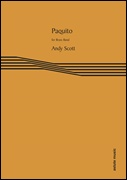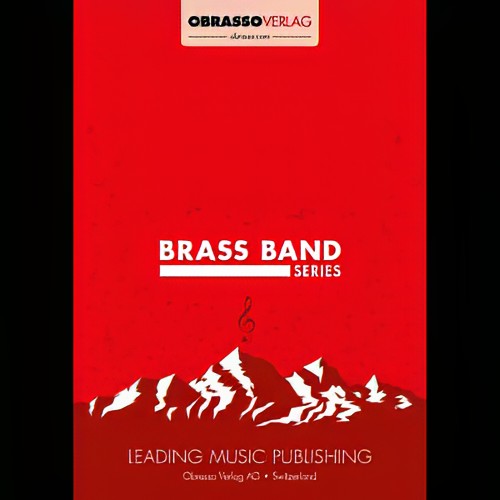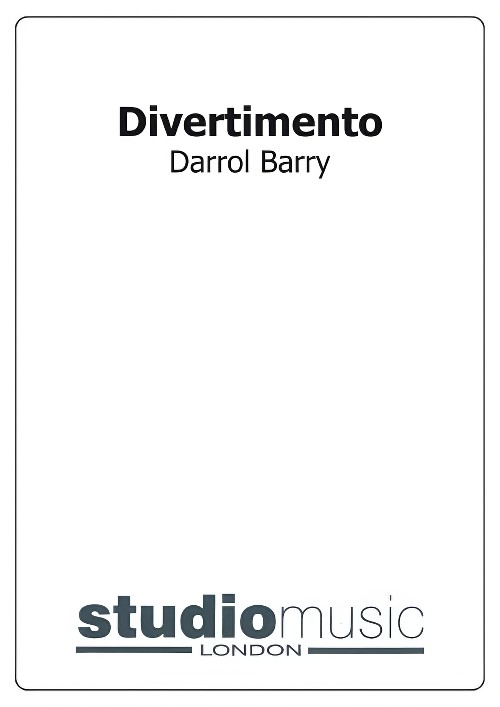Results
-
 £15.00
£15.00PAQUITO (Cornet Section feature with Brass Band Score) - Scott, Andy
Brass Band score only. 'Paquito' pays homage to the brilliant composer/saxophonist/clarinetist Paquito D'Rivera. It is a fast salsa, based around a two-three clave pulse, and is virtuosic showcase for the cornet section. Dur: 3:00
Estimated dispatch 7-14 working days
-
 £54.20
£54.20Cool Cornets (Cornet Section feature with Brass Band - Score and Parts) - Barry, Darrol
Duration: 3.00
Estimated dispatch 7-14 working days
-
 £164.99
£164.99Diamond Concerto (Euphonium Concerto No.3) (Euphonium Solo with Brass Band - Score and Parts) - Sparke, Philip
Diamond Concerto was commissioned by Musikverein Morschied from Germany - Dr. Eric Grandjean, conductor - for a special concert featuring Steven Mead as guest soloist. Together they gave the world premiere on 28th April 2012 in the town theatre of Idar-Oberstein. The commission is a highlight in the 30-year friendship between composer and soloist, which has included many mutual CD projects and concerts and, now, a concerto. Sparke had Steven Mead's special euphonium sound in his head throughout the composition process and made free use of the variety of styles which the world-renowned virtuoso has made his own during his highly successful solo career.The village of Morschied lies to the west of Frankfurt am Main in the area known as the German Road of Precious Stones, which is famous for its thriving gem industry. Because of this it was decided to give the commission a local connection by choosing the title, Diamond Concerto. Each of the three movements is named after a famous diamond:Earth Star is rather stern in mood, opening with a free fantasy for the soloist over a static chord from the band. This leads to an Allegro Moderato in minor mode where small motives are gradually repeated and developed by both band and soloist.Ocean Dream uses a varied quote from the composer's Music for Battle Creek, including a melting slow melody that was originally written with Steven Mead in mind.Blue Heart was written, at Steven Mead's suggestion, in bebop style and takes the form of a jazz waltz. The quasi-improvisatory central section features a call-and-response passage for the soloist and upper woodwinds.Duration: 16:45
Estimated dispatch 7-14 working days
-
 £60.99
£60.99Movements - Patrick Millstone
The three sections of Movements demonstrate the concept of motion in all its orms. The March briskly gets the band going (in motion). section 2 (Sarabande) is solemn and melodious (slow motion), and the Allegro con Brio in section 3 forms an energetic conclusion (commotion) to this enchanting and instructive composition by Patrick Millstone.
Estimated dispatch 5-14 working days
-
 £69.95
£69.95DIVERTIMENTO (Barry) (Brass Band - Score and Parts) - Barry, Darrol
Especially published for the National Championships of Great Britain in 1989, this work is cast in three movements: Festival, Romance and March. A popular and engaging work at this level, it is no stranger to the contest platform, having been used as the Section 3 'Regional' test-piece in 1990, and the third tier of the Dutch and Australian Championships in 1995 and 1996 respectively.
Estimated dispatch 7-14 working days
-
 £32.95
£32.95DIVERTIMENTO (Barry) (Brass Band - Score only) - Barry, Darrol
Especially published for the National Championships of Great Britain in 1989, this work is cast in three movements: Festival, Romance and March. A popular and engaging work at this level, it is no stranger to the contest platform, having been used as the Section 3 'Regional' test-piece in 1990, and the third tier of the Dutch and Australian Championships in 1995 and 1996 respectively.
Estimated dispatch 7-14 working days
-
£29.50
Blue Skies - Irving Berlin - Neville Buxton
This wonderful big band style arrangement of this popular classic is sure to bring high entertainment value to any concert. Introducing the music with a broad opening before the swing section starts, fairly straight forward until E when certain members of the band get to show off in this skillfully arranged section. A fast 3/4 time follows giving the Soprano chance to shine before returning to the big band sound to finish.
In Stock: Estimated dispatch 1-3 working days
-
£24.50
Farondole - Bizet - Alan Beaumont
This famous movement from Bizet's highly popular suite has long been a favorite with brass bands and their audiences alike. This new arrangement now includes better percussion parts (including timpani) and some lovely grace notes for Baritone and Repiano. The Cornet section is also arranged unusually as it is written for 3 players to play the Repiano part and 2 players to play the Solo Cornet line. A wonderful effect.
In Stock: Estimated dispatch 1-3 working days
-
£29.50
New Horizons - Max Stannard
This composition was originally written for the Horwich RMI Band to commemorate the life of Matthew Densfield, who has a drummer in his school brass band before his passing at an early age. This is a lively and energetic concert opener which encapsulates Matthew's love of live and rhythm as a drummer. This would be an excellent opener for your next concert and suitable for most bands from 4th to championship section to play. Duration: 3 minutes.
In Stock: Estimated dispatch 1-3 working days
-
 £127.30
£127.30Rendezvous - Torstein Aagaard-Nilsen
Rendezvous was commissioned by Krohnengen Brass Band for their 50th Anniversary in 2019.Rendezvous is devided into three sections. Each section are referring to Edvard Grieg's own titles. but twisted, to make sure that everybody understand that this music is a mash-up of themes Edvard Grieg used in opus 54 (for piano) and opus 61 (songs for children).1. Trolltog med avsporing (March of the Trolls derailment)March of the Trolls is a famous part of Edvard Grieg lyric pieces, opus 54.2. Klokkeklang i feil sang (Bell ringing in wrong tune).Bell ringing show that Grieg was one of the first composers to write the way impressionists did. What happens if this beatiful piece is combined with several other themes from the same book? It somehow works in its own way.3. Pep talk til Blakken (Pep talk to Blakken)The riff used in the first part becomes an important part of the third part: a funky treat of the childrens song "Kveldssang for Blakken" (Evening song for Blakken).I felt that a rather tired old horse needed a pep talk more than a slow tune. So that is why you get this music(!) - and this is how my rendezvous with Grieg ends.Not sure what maestro Grieg would have thougt... But, I have read that the fiddlers that played the tunes Grieg used was not happy with the way Grieg used them.So there you go...Torstein Aagaard-Nilsen
Estimated dispatch 5-14 working days
